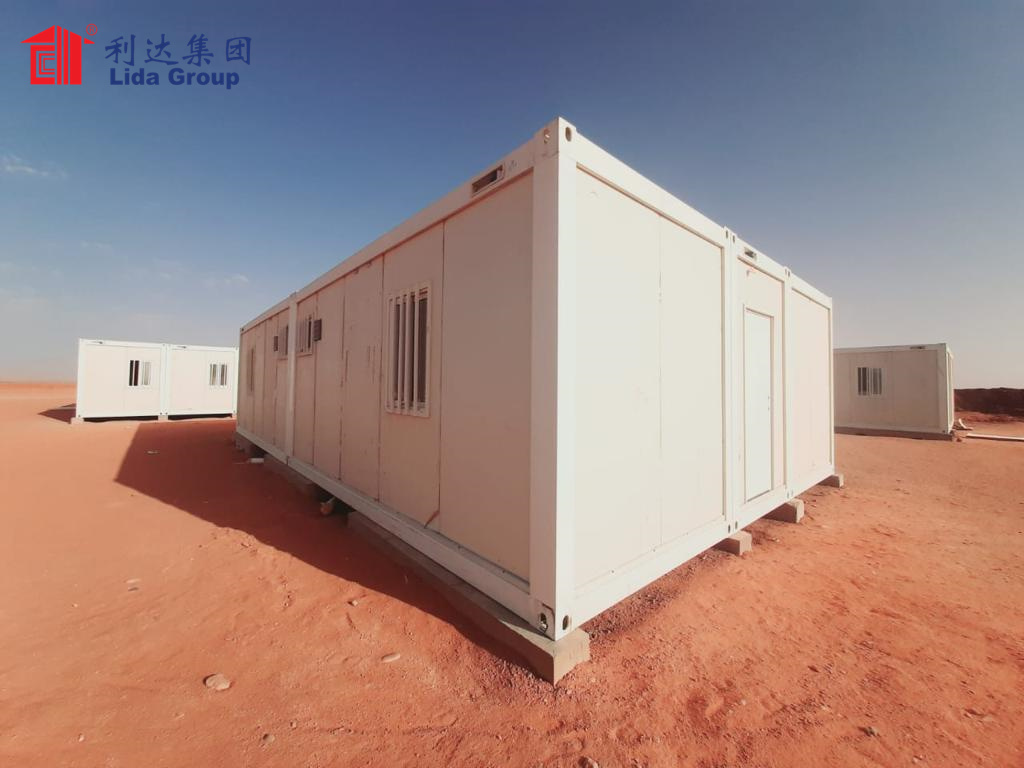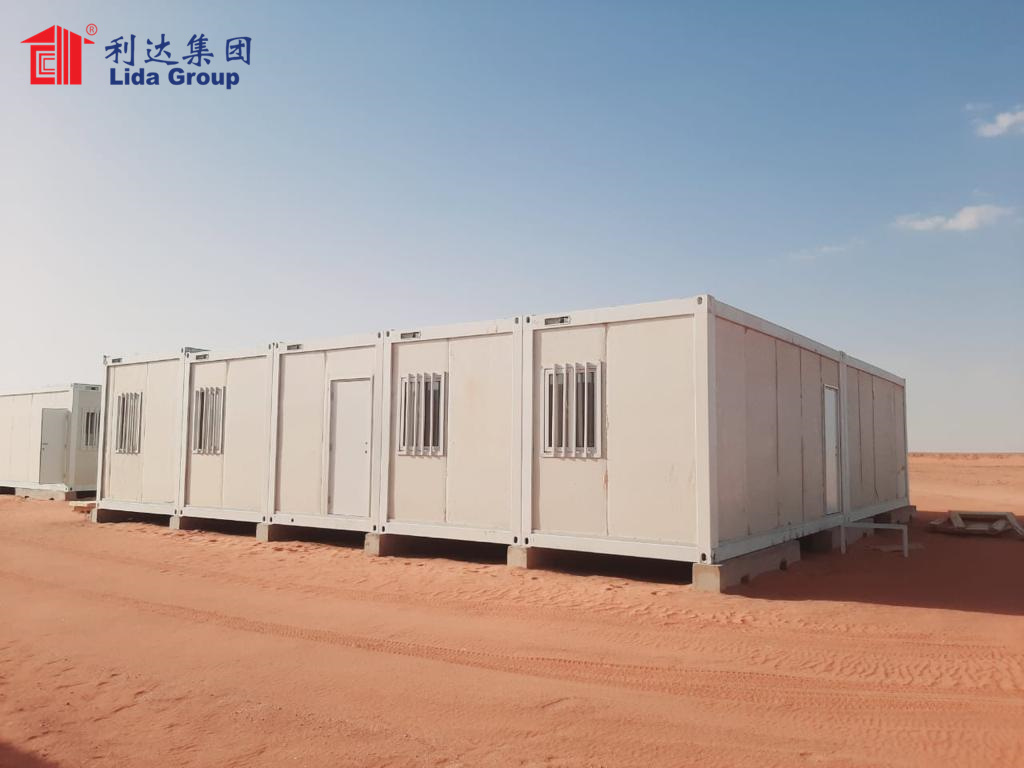Local authorities have launched an investigation into the cause and contributing factors of a large fire that fully destroyed a rural container home development constructed by Shanghai-based Lida Group. The multi-building housing project located two hours outside of the city lacked proper fire protection infrastructure when blaze broke out, gutting all 48 modular steel homes built using the company’s standardized shipping container construction system over just three weeks prior. No injuries were reported but residents lost all belongings, leaving many homeless again after just moving in.
Situated down narrow country roads with limited water access, the remote Lida Group development aimed providing affordable housing for migrant farmworkers. Using their mass-produced modular building system, construction took only 18 days to deliver the first cluster of eight single-family container home structures. However, fire officials note the isolated location posed challenges meeting safety codes for adequate water pressures, truck access points and minimum separation distances between buildings common in dense urban planning but not rural sprawl patterns.
While the cause remains under investigation, initial evidence points to an electrical fault from substandard or damaged wiring as likely sparking the fast-moving blaze in one home shortly after midnight last Thursday. Strong winds fanned flames which quickly spread laterally via overhead ember exposure between closely packed container rooftops lacking fire-resistant construction. Within 30 minutes the entire development was engulfed, burning fiercely until emergency crews arrived two hours later when structures were fully collapsed.

Fire officials highlight inherent fire risks of the standardized modular housing typology using closely stacked combustible containers as structural frames with wood fiber composite wall panels. While meeting residential codes, such construction lacks safeguards for fire scenarios without nearby infrastructure like abundant water mains or rapidly deployable trucks. No fire suppression systems were installed and manual fire extinguishers aboard proved ineffective against the roaring inferno overwhelming first responders arriving after structures collapsed.
Planning authorities now question whether proper consideration evaluated alternatives or additional mitigation integrating critical fire safety systems before green-lighting development at the remote isolated location lacking protection infrastructure. Further review probes if container-based modular construction was appropriate given higher inherent risks versus traditional masonry or concrete construction able to withstand spread better without sprinklers or abundant water access points. Local rural municipalities now draft updated fire protection provisions for future non-urban housing projects through refined code compliance.
Lida Group faces criticism and legal liability for the project approved without addressing clear fire hazards given the isolated setting lacking code-compliant infrastructure. While their off-site prefabricated modular system provides affordable housing construction globally within tight timeframes, it may not suffice standalone without strict fire safety planning. Resolving liabilities from the devastating blaze could impact insurance rates and delay future rural development plans utilizing similar container construction techniques without upgraded protective measures.

Moving forward, authorities are reviewing potential fire safety upgrades applicable to existing modular prefabricated housing developments placed in isolated non-urban environments reliant on distant emergency response times. Retrofitting sprinkler systems, fire walls, ignition-resistant siding materials as well as formalizing secondary access routes top consideration lists. Communities are fundraising to rehouse displaced families while construction experts evaluate strengthening container framing to resist lateral fire spread through alternate joint designs less prone to airflow passage facilitating rapid conflagrations.
Though modular construction holds promise delivering housing affordably where traditional methods struggle, this tragic event underscores the importance of factoring inherent risks into development approval processes. Strict code-compliant master planning, materials selection and protective systems integration remain essential safeguards wherever projects lack proximate infrastructure—particularly those pioneering new typologies like containerized modular construction still warranting more lessons learned from unforeseen disasters. More proactive investigation and prevention aims halting future tragedies through collaborative cross-sector risk mitigation practices refined through open-minded review of failures ultimately serving public safety.
In summary, local authorities have launched a probe into compliance and fire risks factors potentially contributing to a devastating blaze fully destroying a 48-unit rural housing project constructed by Lida Group within their standardized containerized modular system. While such construction excels delivering housing at rapid timescales, this tragedy underscores inherent hazards of the typology lacking code-compliant protective infrastructure when placed in remote isolated areas reliant on distant emergency response. Proactive review now targets upgrades applicable to existing developments as well as strengthening approval processes evaluating alternative mitigations for future projects pioneering innovative housing solutions in non-urban environments still requiring more lessons learned ensuring code-integrated public safety. The investigation ultimately aims halting future disasters through collaborative risk management refined through transparent review of failures.

Related news
-
Developers Partner with Lida Group to Construct 250-Unit Container Home Community targeting Young Professionals with Floor Plans Optimized for Small Living
2023-12-21 13:27:42
-
Lida Group Breaks Ground on Multimillion Dollar Factory to Mass Produce Standardized Wall Panels and Fixtures for Prefabricated Steel Container Housing Modules
2023-12-20 17:54:42
-
Fire Destroys Prototype of Lida Group's Design for Multi-Story Apartment Building Utilizing Stacked Steel Shipping Containers as Structural Cassettes
2023-12-20 17:43:00
contact us
- Tel: +86-532-88966982
- Whatsapp: +86-13793209022
- E-mail: sales@lidajituan.com


